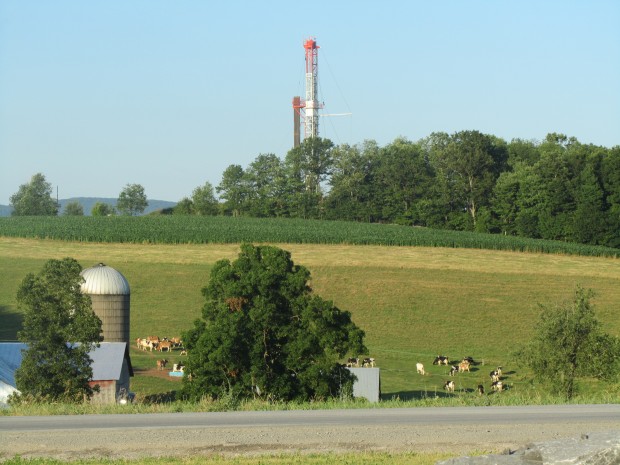State Auditor General to investigate where drilling impact money is going
-
Marie Cusick

Kim Paynter/ WHYY
Drilling impact fees have generated $854 million for Pennsylvania over the past four years, but local governments have had trouble accounting for how they’ve spent the money.org / WHYY/Newsworks.org
State Auditor General Eugene DePasquale (D) plans to investigate how local governments are spending the millions of dollars they’ve received from gas drilling impact fees.
The fees have brought in more than $854 million to Pennsylvania since 2012. The majority of that money gets sent back out to local governments. But so far, $33.1 million has been unaccounted for, because counties and municipalities have repeatedly had trouble filling out the paperwork to explain what they’ve done with it. DePasquale’s office gets complaints about government misspending every day, including concerns about where the impact fee money is going.
“In the northeastern part of the state and the southwestern part of the state is where we have received complaints at this point,” he says. Both areas are major hubs of gas activity.
The state Public Utility Commission (PUC) collects and distributes the money, but it has no legal authority to audit the expenditures. PUC spokesman Nils Hagen-Frederiksen says the commission tries to do outreach. It contacts local governments at least three times in an effort to get the reports.
“The reality is you’re dealing with a lot of local government, and it’s a lot of part-time positions,” he says. “At the end of the day, the responsibility for filing the report is on the local municipality.”
He says the largest shortfall ($20 million of the $33.1 million total) was from the first year reporting was required.
“That was a year everybody was learning. We think the steps taken since then – including ability to electronically file—have had an impact.”
DePasquale plans to launch an audit by mid-2017. He says he is waiting until his staff is available and they have a sizable number of projects to analyze.
“It’s something we’re definitely going to do,” he says. “We want to have enough money spent across the state, so we have something to actually look at.”
















